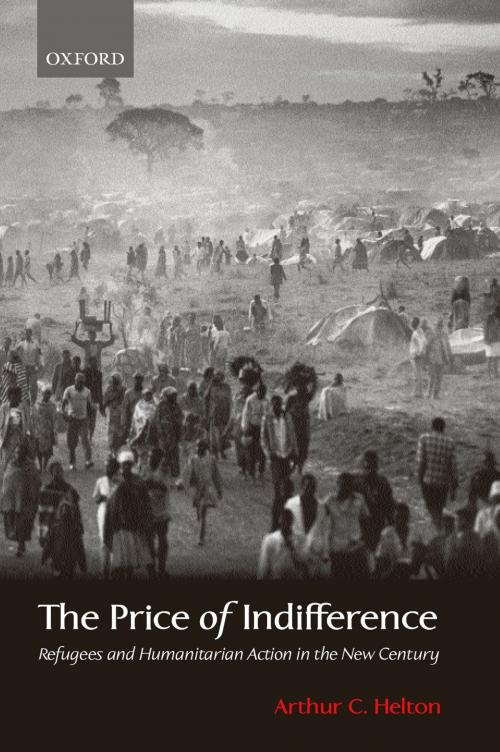The Price of Indifference: Refugees and Humanitarian Action in the New Century
Nonfiction, Social & Cultural Studies, Political Science, International, International Relations, History| Author: | Arthur C. Helton | ISBN: | 9780191037528 |
| Publisher: | OUP Oxford | Publication: | March 7, 2002 |
| Imprint: | OUP Oxford | Language: | English |
| Author: | Arthur C. Helton |
| ISBN: | 9780191037528 |
| Publisher: | OUP Oxford |
| Publication: | March 7, 2002 |
| Imprint: | OUP Oxford |
| Language: | English |
Refugee policy has failed frequently over the past decade, resulting in instability, terrible hardships and loss of life. This book is the first effort to review systematically the recent past and re-design policy to give fresh answers to old problems. Specific recommendations are made to re-conceive refugee policy to be more proactive and comprehensive as well as to re-organize how policy is formulated within and among governments. Refugee policy has not kept pace with new realities in international and humanitarian affairs. Recent policy failures have resulted in instability, terrible hardships, and massive loss of life. This book systematically analyzes refugee policy responses over the past decade, and calls for specific reforms to make policy more proactive and comprehensive. Refugee policy must be more than the administration of misery. Responses should be calculated to help prevent or mitigate future humanitarian catastrophes. More international cooperation is needed in advance of crises. Humanitarian structures within governments, notably the United States, as well as the wide variety of international institutions involved in humanitarian action must be re-oriented to cope with new challenges.
Refugee policy has failed frequently over the past decade, resulting in instability, terrible hardships and loss of life. This book is the first effort to review systematically the recent past and re-design policy to give fresh answers to old problems. Specific recommendations are made to re-conceive refugee policy to be more proactive and comprehensive as well as to re-organize how policy is formulated within and among governments. Refugee policy has not kept pace with new realities in international and humanitarian affairs. Recent policy failures have resulted in instability, terrible hardships, and massive loss of life. This book systematically analyzes refugee policy responses over the past decade, and calls for specific reforms to make policy more proactive and comprehensive. Refugee policy must be more than the administration of misery. Responses should be calculated to help prevent or mitigate future humanitarian catastrophes. More international cooperation is needed in advance of crises. Humanitarian structures within governments, notably the United States, as well as the wide variety of international institutions involved in humanitarian action must be re-oriented to cope with new challenges.















